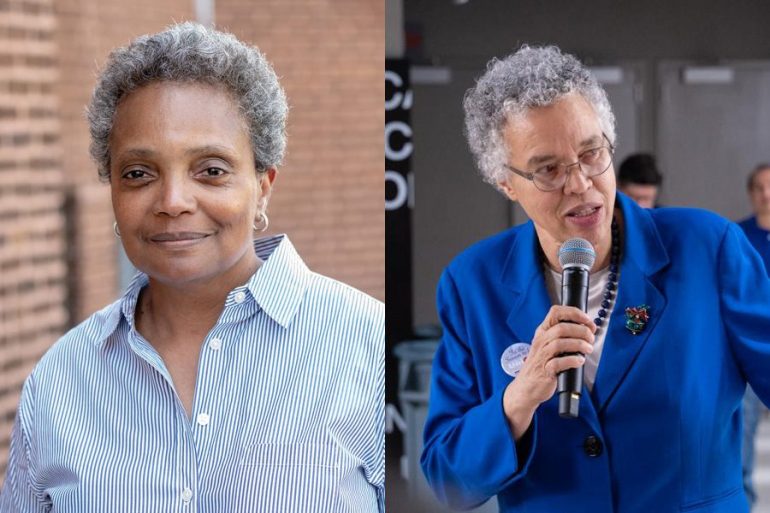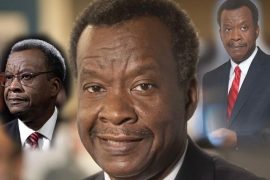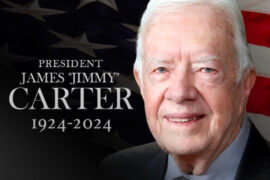Chicago’s mayoral election was stunning and startling. I felt from the very beginning there would be an upset, but I didn’t know how or by whom. The polls did not see the dead heat until the very end.
Lori Lightfoot got the most votes of the 14 candidates at 17.54 percent. She gained slowly throughout election evening, eventually winning with 97,037 votes. Toni Preckwinkle came in second with 88,757 votes, which was 16.04 percent of the total.
These top two finishers combined had only 33 percent of the final vote and now face each other in an April 2 runoff election, which happens in Chicago when no candidate gets over 50 percent of the total vote.
The newspaper endorsement from the Chicago Sun-Times – a three-page endorsement supporting Lightfoot – was the real beginning of Lori’s ascent. That was her only media endorsement and it worked.

How It Shook Out
Without a doubt, Lightfoot ran the smartest campaign with prudence. She did not raise the most money for the most votes. She had only one TV commercial that suggested “bringing in the LIGHT,” which really meant bringing in the CHANGE.
Lightfoot spent an average of $16.70 for 17.54 percent of the vote, while one of the lowest vote getters, Bob Fioretti, spent the most per vote – $150.78 for 4,263 votes. The Latinos did not vote for either of their two candidates, Susana Mendoza or Gery Chico.
A lot happened in this campaign, some things obvious, some not. Chicago has never had so many candidates in one mayoral race and so many people running obviously produced apathy, as only one-third of the populace voted. Out of 1,581,755 registered voters, only 557,066, or 35.22 percent, turned out to vote.
In this race, there was a candidate for everybody. People were confused and overwhelmed and that caused many not to go to the polls, even with voting being easier than ever before.
So the silent majority really are the winners. Many said they would wait for the runoff election before making a decision and did not cast a vote in the regular contest.
The millennials did not vote – less than four percent of votes cast were by people under 25 – even though they had a candidate of their very own, Amara Enyia.
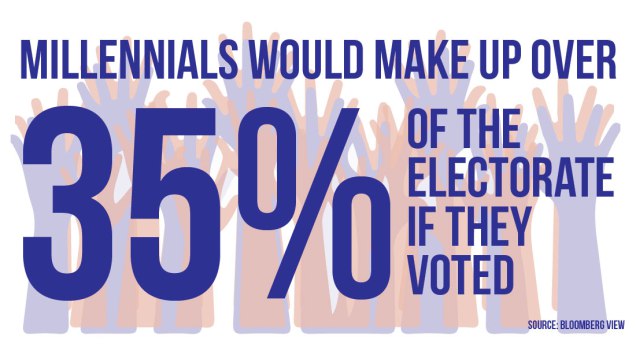
Enya eloquently spoke on their challenges, with top entertainment support from Chance The Rapper and Kanye West, among others. But Enyia fell down as questions about her personal finances and responsibilities came forth. She received 44,235 votes, about eight percent of the total and came in sixth among the 14 candidates.
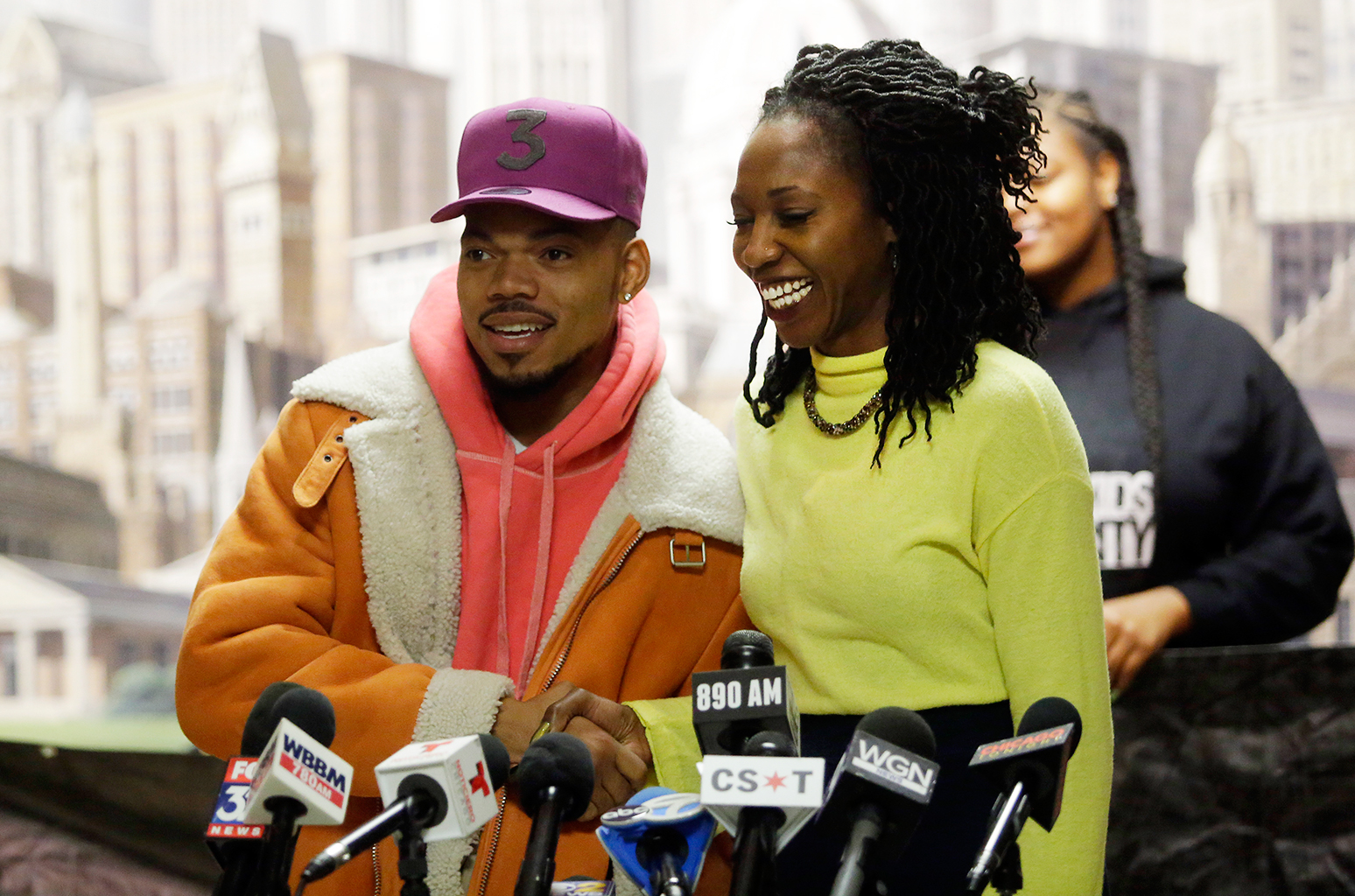
Bill Daley raised the most money, but lost the election, coming in third place with 81,706 votes, good for 14.77 percent of the total. He carried corporate Chicago. But his fellow Irishman, Jerry Joyce, with his 7.22 percent of the vote, cut into Daley’s population, so significantly that it cost Daley the election. It seems that Joyce was angry with Daley entering the mayoral race so late in the game. Joyce galvanized his troops in Beverly to counter Daley.
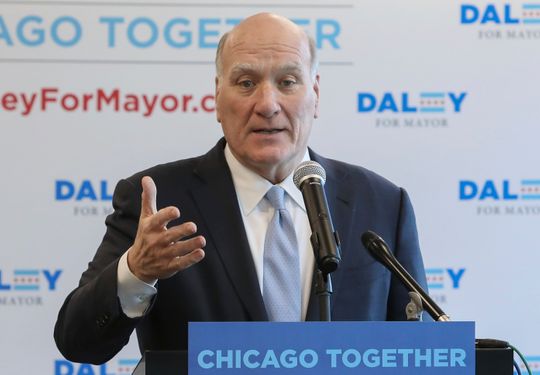
Dr. Willie Wilson was underestimated by most. He actually ran the best campaign, with the best ground game. Red Wilson signs were plastered all over the city, as the polls showed him at only four percent.
But Willie’s final tally was nearly 11 percent of the vote, with 58,699 casting their ballots for him. This is around the same number that voted for him in a previous election. Willie’s church base is firm and solid and because he got the most Black votes, Wilson could be queen maker in the upcoming election, as he prepares to endorse for the runoff election.

Black Women Facing History
So now here we are with the winners, two African-American women who will make history as the world watches the race.
Toni Preckwinkle has become a party boss as she positions herself to be a “progressive.” Is she a hack? We saw her campaign in its final days collapse from internal strife. The Cook County Board president had to fire her chauffeur because he was driving on county time with her mayoral campaign literature in the back seat of the car. So much for Toni’s loyalty as she fired him.
She fired her chief of staff because of sexual assault that went unnoticed until newspapers wrote about it and then he was fired. And then there was the firing of the campaign manager days before the February 26 election because of his anti-Semitic Facebook posts.
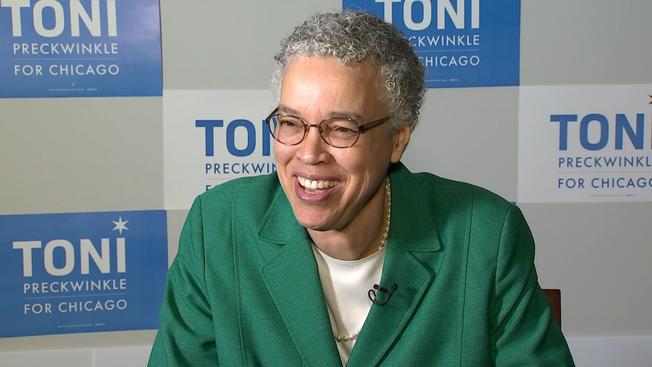
It was noticeable to more than a few voters that Toni didn’t enter the race until Rahm Emanuel said he would not run. She was not chancing a real race with the big boss. So she opportunistically stepped into a crowded field where she thought she would be a sure thing with Rahm not in the running.
But when Toni had a clear shot to City Hall in 2015 in the last election, she didn’t take it, even though many community leaders urged her to do so. She played it safe; she had a job as Cook County Board President.
Still does. So what does she lose if she loses the mayoral race? Nothing. She’ll still be Cook County Board President. So in essence, we taxpayers who are paying Toni’s county board salary are also paying for her to run for mayor. Something’s wrong with that picture.
Toni is the party boss, a progressive who is actually playing both ends against the middle. When her record is examined, we find very little change or contributions on her behalf to the Black community.
Toni has been head of the Cook County Board since 2010 and yet, nine years later, reportedly there is still only a two percent African-American spend with county dollars within a $5.9 billion budget.
Grandmother Preckwinkle poses as one who fought the Machine, though she has evolved to be the party boss. The revelation of the fundraiser with indicted Ald. Ed Burke smacked her in the face with political reality.
And then she threw Justice Ann Burke under the bus as she denied affiliation with Ald. Burke, but claimed she was good friends wife Ann Burke. And it was Ann Burke who suggested the fundraiser, so Toni says, where she raised over $100,000 that she had to return due to public pressure after Ed Burke was indicted.
Clearly the Preckwinkle pattern is that all is well and good until she gets caught with her hand in the cookie jar.
In addition, an outraged public rejected her balance of the county budget theory, which she said needed the sugar tax on soft drinks. That gave her the popular nickname of “Queen Sugar.”
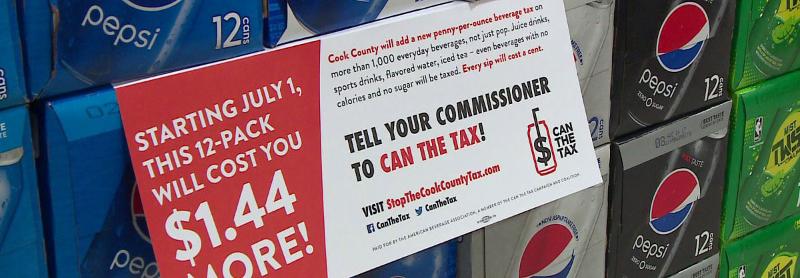
In October of 2017 after the county board was forced to repeal the sugar tax because of public revolt, Toni said that loss of revenue blew a $200 million hole in the county budget and warned of dire consequences to come.
And yet, in October of 2018, Preckwinkle announced a balanced budget for 2019, about $700 million larger than the county’s 2018 budget, and which needed no new taxes.
The Daily Herald reported at the time that the 2018 budget deficit caused by the loss of the sugar tax “was closed through a combination of increased hospital revenue, projected sales tax growth, and heightened tax enforcement efforts, according to county officials.”
So if that’s the case, why was the sugar tax implemented in the first place? Why couldn’t those efforts have been taken originally, without even bringing in the sugar tax, which passed, by the way, when Toni personally broke the tie among county board commissioners that allowed the tax to take effect?
That mentality is frightening to some as it evades personal choice with taxation. She frightens many with her thought pattern. As mayor she might tax bread and butter next, with no good, rationale reason, as with the sugar tax.
Lightfoot’s Ascent
The real winner of the February 26 election was Lori Lightfoot. The short, openly gay one rose like a phoenix. She used her money wisely and ascended to the top. The real progressive stood tall. Her position was clear, she defined herself, she told her story, and she has been forthright. She has started a movement with gays and real progressives.
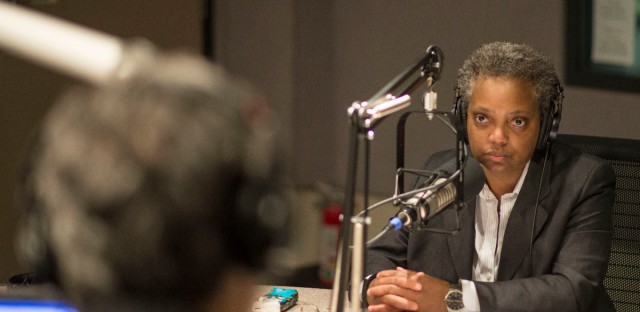
Lightfoot’s challenge now is to engage the Black community. Her votes came from the North Side. She carried the White community. She now has to reach deep into the South and West sides for votes.
Lori was clearly the “change” candidate. She beat the machine. She beat the experienced. She beat the tried and true. She beat the unions. She beat the standard operating bosses and activists.
She won with direct answers as she shook hands alone at the transit stops on snowy, cold days. And now her challenge is to carry it over the finish line. In the first mayoral runoff poll released Monday, Lightfoot held a commanding 58 percent lead over Preckwinkle with 12 percent undecided.
The challenge for both of the African-American women runoff candidates is now to get African-American voters to rise to the historic political occasion.
The world has changed. When Harold Washington won in 1983, he had 83 percent of the Black vote and that vote delivered him to the Fifth Floor of City Hall. In 2019, businessman Willie Wilson was the Black candidate and won all but one of the Black wards.
Neither Lori nor Toni carried Black voters. That is the challenge before both now, to get Black voters to get to the polls to vote for a Black woman.
Which one? Which will win the Black vote, the white vote, the Hispanic vote, the youth vote? That’s still to be determined, but the reality is that no matter whom the public votes for, on the morning of April 3, 2019, a Black woman for the first time in history will be the Mayor of the City of Chicago.


